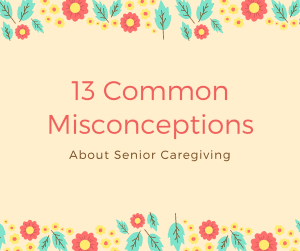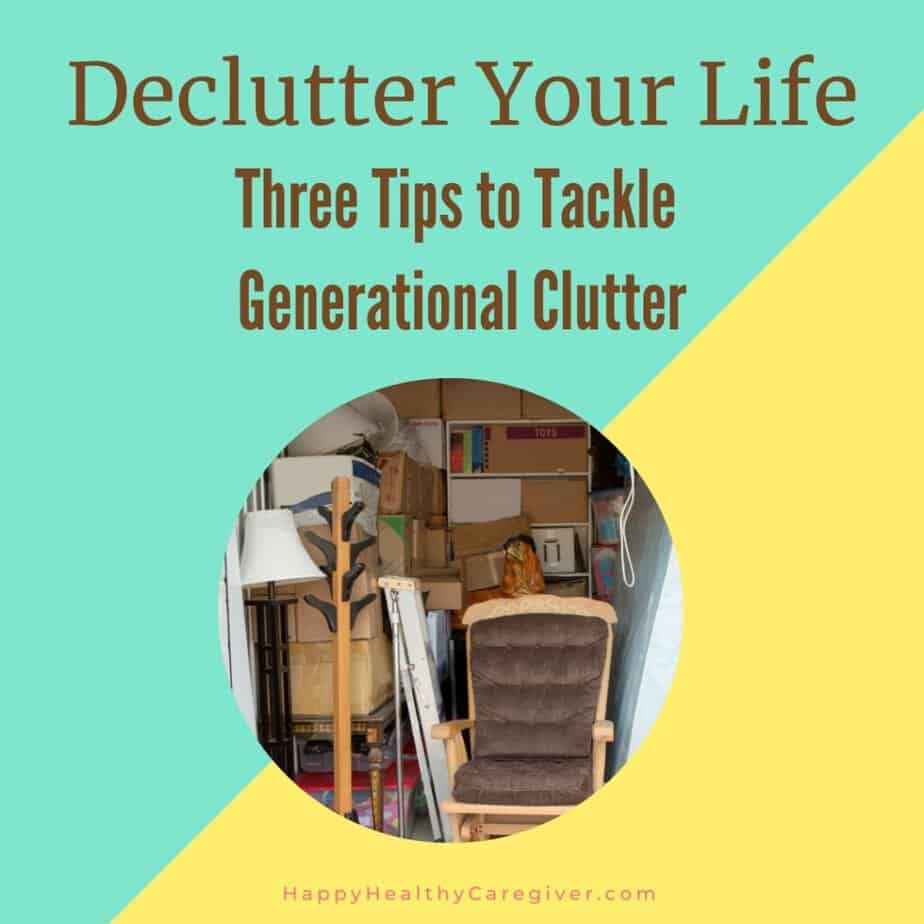A guest post written by Victoria Sanders.
According to the Caregiver Action Network, almost 40 percent of adults in the United States are caring for a loved one who is living with illness, physical limitations, or dementia. While everyone’s circumstances are different, it’s clear that there are many people in a caregiver position.
With so many people living as caregivers for their loved ones, there are many misconceptions. We’re going to clear the air with some facts from our own experience and that of others.

- Your Loved One “Doesn’t Need It”
It’s tough to see your loved one struggling with tasks that used to be simple for them, but this is a natural part of the aging process for many people.
- Home Care Is Only for Emergency Scenarios
There are plenty of healthy seniors who may need a little help with one or two tasks, like driving or certain household activities.
- Your Home Is Ready for Senior Safety
To properly care for your loved one, you need to prepare your living space with senior safety in mind. There are a lot of senior safety tips and tools out there to help keep you safe.
- Senior Caregiving Has Stringent “Rules”
Caregiving is customizable, for people who need help permanently, to those who need light support.

- You’re on Your Own as a Caregiver
Caregiving can be stressful at times, and that’s okay. There are plenty of support resources just like the online Happy Healthy Caregiver Community and the Daughterhood Circles.
- Those with Certain Conditions Need to Be in a Facility
You would be surprised what type of health conditions can be maintained and treated at home if you are willing to invest the time and money.
- You Must be the Sole Caregiver
In some cases, you may not be a good match as a caregiver and can certainly have a tribe of helpers, or you need to take a temporary break. That is okay.
8. Most Caregivers Are Women
The stats are changing! 40 percent of caregivers are men, and overall, more young people are getting involved.
9. Caregiving is a Routine Set of Tasks
Many caregivers help their family members with finances, medical care, and even operating certain medical equipment.
10. Homecare Is Only Temporary
You can make arrangements to be a home caregiver as long as is needed.
11. Caregiving Is Unaffordable
On average, home care can save you more than a private nursing home, even if you get extra help at home.
12. There is No Financial Impact of Caregiving
63 percent of caregivers experience a reduction in income, but only 38 percent actually plan for it.
13. Caregiving Is Not Rewarding
Caregiving provides emotional rewards with the satisfaction that you are helping a loved one.
About the Author: Victoria Sanders is a full-time caregiver for her 96-year-old father who has suffered a stroke as well as a heart attack. In her spare time, Victoria enjoys cooking, gardening, and spending time with her husband and their dog.



